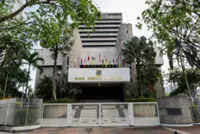HONG KONG: Fierce competition for new mortgage customers is driving banks in Hong Kong to offer the highest cash rebates in nearly two decades.
The deals, offered as a percentage of the principal loan amount, have been ramped up from about 1.3% last year to as much as 2.6% currently, the highest in over 17 years, according to Centaline Mortgage Broker data.
Already a subscriber? Log in
Get 20% OFF The Star Digital Access
Cancel anytime. Ad-free. Unlimited access with perks.





